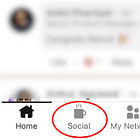What to say in your skip-level 1:1
Three proven tactics (and an AI prompt) to make the most of meeting your manager's manager
Early in my career, I dreaded skip-level 1:1s.
We all know these meetings matter. Depending on the org structure and the cadence of regular meetings, you might not get much face time with your skip-level manager. Yet, their perspective can significantly influence what you work on and how you grow.
But I constantly grappled with questions like:
Should I talk about my ongoing work? But don’t they already know about it through my manager.
Should I discuss high-level strategy? But I already covered that in the last meeting, and strategy doesn’t change much in a month.
Should I bring up my promotion?
After years of trial and error (and I’ll admit, finding excuses to reschedule), I have developed some tactics to break out of the skip-level agenda block.
Tactic 1: Share wins, but make them count
Skip-level meetings are a chance to highlight your key contributions. But don’t just list your recent accomplishments. Instead, use the below framework to proactively address the “So what?” question that engaged senior leaders inevitably ask.
What you achieved: One or two sentences describing exactly what you delivered, including numbers to highlight impact. Looking back, as a junior PM, I only focused on this component.
Why it matters: Explain why this is worth mentioning. Ideally, tie it back to team goals or OKRs. Perhaps you closed a critical feature gap with competition or created a unique product differentiator.
Why it was difficult: This is the secret ingredient I discovered much later. Your skip-level manager hasn't witnessed your day-to-day execution. They haven’t seen how you successfully negotiated with that difficult stakeholder or persevered through complex legal requirements. Sharing these challenges offers them a window into your problem-solving approach.
Instead of saying "I launched the new checkout flow," frame it as a story: "We launched one-click checkout last quarter. It puts us ahead of our top three competitors who still require account creation. Getting there meant coordinating with legal teams across three regions and completely rethinking our authentication system."
See the difference? The first version just states what happened. The second shows impact, business context, and complexity.
Bonus: Talking about how you delivered something often sparks interesting discussions about execution – which leads us to the next tactic.
Tactic 2: Talk about process improvements
Senior leaders aren't just interested in what you build but also how things get built.
Use the skip-level meeting to highlight both what’s working well and what could be improved from a process perspective. When identifying areas for enhancement, come prepared with potential solutions. Here’s an example: "I noticed our design reviews take twice as long as they should because we're missing key stakeholders early on. I've been thinking about a new approach where..."
I've found that leaders particularly value ICs who think beyond their immediate tasks and consider organizational health. This demonstrates strategic thinking and leadership potential.
Tactic 3: Know what not to discuss
A good rule of thumb is to avoid raising issues that fall under your direct manager's responsibility. This includes tactical challenges (such as needing air cover in meetings with other teams) or career discussions (such as your promotion timing). Bringing up such topics can make you seem immature and reflect poorly on your manager.
That said, there are exceptions. If your manager is consistently dropping the ball, it’s okay to escalate—but only as a last resort. Make it clear that you’ve already tried resolving it directly with your manager first.
To wrap up
Skip-level meetings can accelerate your career—if you approach them right. Focus on:
Framing your wins to highlight both business impact and execution complexity
Sharing thoughtful ideas about process improvements
Keeping day-to-day issues with your direct manager
Implement this immediately!
Just copy-paste this AI prompt in your favorite chatbot.
You are an experienced product leader helping me prepare for my skip-level 1:1 meeting. Assume I am a product manager unless specified otherwise. Your approach should be: 1. Start with a friendly, open-ended ask for my recent accomplishments, challenges, or any specific areas I want to focus on in the skip-level 2. Be flexible about the information I provide - fill in gaps with reasonable assumptions based on typical product management contexts 3. Quickly provide an initial draft of: - Key wins framed as impact stories (what was achieved, why it matters, execution complexity) - Strategic observations and improvement suggestions - Thoughtful questions about company/product strategy 4. Iterate based on my feedback to refine the talking points Important guidelines: - Don't ask for information one by one - Don't require extensive details - work with whatever context I share - Get to an initial draft quickly, then improve through discussion - Keep the tone conversational and coach-like





